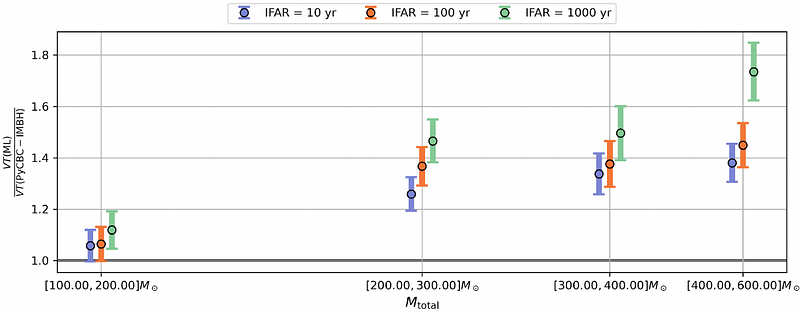Improving the detection significance of gravitational wave transient searches with CNN models

Improving the detection significance of gravitational wave transient searches with CNN models
Johann Fernandes, Archana Pai, Koustav Chandra
AbstractGravitational wave (GW) transient searches rely on signal-noise discriminators to distinguish astrophysical signals from noise artefacts. These discriminators are typically tuned towards expected signal morphologies, which may limit their effectiveness as detector sensitivity improves and more complex signals, such as from core collapse supernovae or compact binary mergers featuring precession, higher-order harmonics, or eccentricity, become detectable. In this work, we use a Convolutional Neural Network-based approach to classify noise transients from astrophysical transients, aiming to enhance the sensitivity of existing searches. We evaluate our method on two matched filter based searches, PyCBC-IMBH and PyCBC-HM tuned for Intermediate Mass Black Hole (IMBH) binary systems. Our approach improves the sensitive volume-time reach of these searches by approximately 30% at a false alarm rate of once per 100 years. Finally, we apply our method to the first four chunks of the first half of the third observation run and demonstrate a marked improvement in significance. In particular, we significantly improve the first IMBH binary GW event GW190521 with an IFAR exceeding 42000 years.